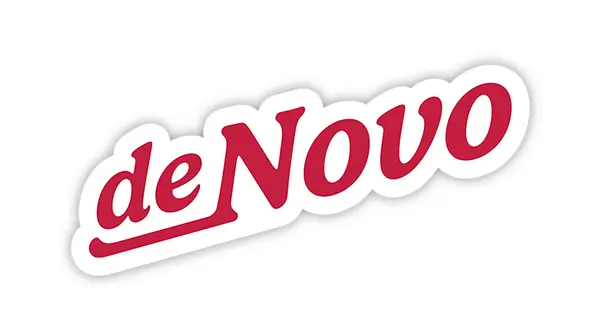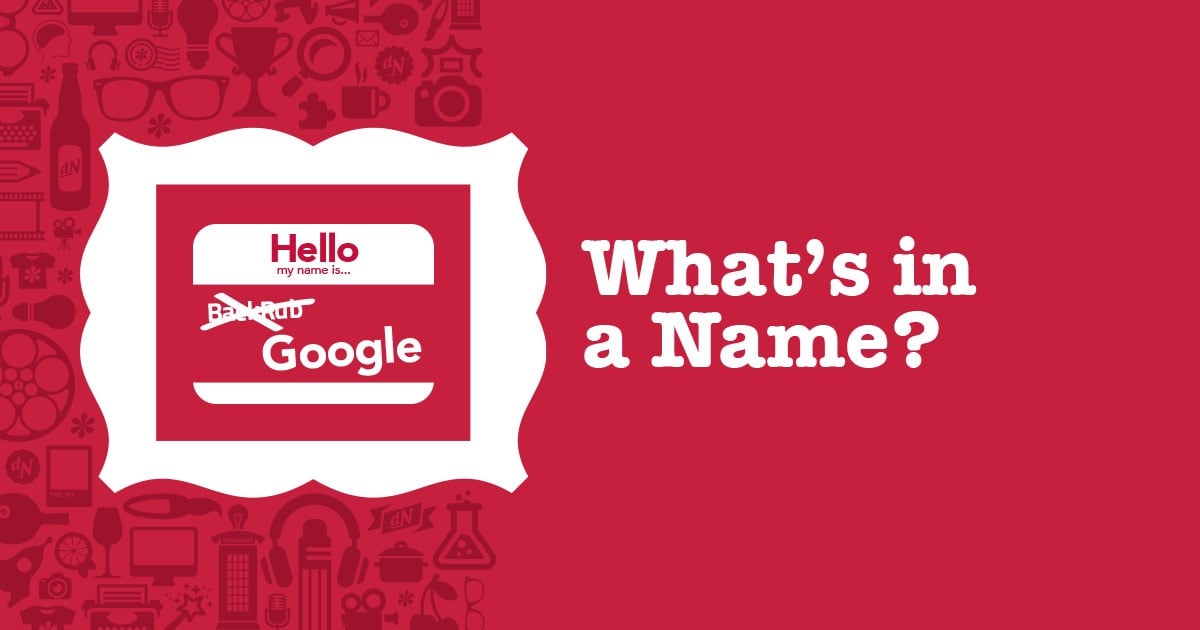Naming your company something memorable, unique and globally useful can be a challenge. Now imagine naming your company but finding that the name doesn’t resonate with your intended target. Or that you’ve had to pivot, changing your service or product and need a new name to reflect that change. For multiple reasons, a name change is sometimes required. Here are a few interesting cases in favor of change:
Formerly BackRub, now Google
Creators Larry Page and Serge Brin’s first big collaboration in 1996 was a search engine called BackRub. Backrub operated on servers on the Stanford University campus for more than a year before it eventually started to use too much bandwidth. The name “Google” was a play on the word “googl,” which is a mathematical term for the number represented by the numeral 1 followed by 100 zeros. Page and Brin had a mission to organize an infinite amount of information available to us on the web, and they wanted their brand name to reflect that mission.
In 1998, the business was renamed to Google, and less than a decade later, “Google” was added as a verb to the Oxford English Dictionary. Imagine asking Siri to “BackRub the nearest dentist.” It’s creepy at best.
Formerly World Wrestling Foundation, now World Wildlife Foundation?
To avoid confusion and any possible wrestling matches with gorillas, the wrestling group changed their acronym to WWE in 2002.
Formerly Sound of Music, now Best Buy
Sound of Music was an electronics store that specialized in high fidelity stereos. It profited $58,000 in its first year of business in 1966. Then in 1981, its most profitable store was hit by a tornado. The company held a “tornado sale” to sell damaged and excess stock, and advertised by offering “best buys” on items. During this four-day sale, the company made more money than they had in a typical month. The store was then later named to Best Buy in 1983.
Formerly Drive-Ur-Self, now Hertz Rent-A-Car
In 1923, Jon Hertz purchased a car rental operation from founder Walter Jacobs and gave it the name Hertz Drive-Ur-Self. In 1926, General Motors Corporation acquired the company, which was later bought by Omnibus Corporation, who later simplified things and changed the name to The Hertz Corporation.
Formerly Kentucky Fried Chicken, now KFC
Kentucky Fried Chicken began a rebranding process in 1991 by shifting the focus to its initials, KFC. Many rumors spread about what prompted the switch, including the company not wanting to pay royalties to the State of Kentucky. The actual reason behind this switch, however, was to remove the word “fried” from the name. Management felt as if this word gave the brand an unhealthy image. Do you think this means the chicken is now healthier somehow? We’re not banking on it.
Formerly AuctionWeb, now eBay
After launching in 1995, eBay was initially named AuctionWeb. AuctionWeb was one of four sites under an umbrella company called eBay Internet, but the media continuously referred to AuctionWeb as eBay, so in 1997, the company said “screw it,” and made the name change official. Talk about caving into the press!
Formerly Marafuku Company, now Nintendo
The playing cards company founded in 1889 that originally went by the name Marafuku Company changed its name to Nintendo Playing Card Company in 1951. The company then shortened its name to Nintendo in 1963 when they started to manufacture games in addition to playing cards.
Formerly Brad’s Dink, now Pepsi-Cola
Pharmacist Caleb Bradham started experimenting with soft drink recipes in 1893, giving one recipe the name “Brad’s Drink.” In 1898, this recipe was renamed Pepsi-Cola, after two of its ingredients: pepsin, a digestive enzyme, and kola nuts.
Formerly Wards Company, now Circuit City
Samuel S. Wurtzel opened the first Wards Company store in 1949. Wards was an acronym of the founders last initial and the initials of different members of his family: W – Wurtzel; A – Alan; R – Ruth; D – David; S – Sam. Wards later tested several retail formats, including smaller mall outlets branded “Sight-n-Sound” and “Circuit City.” After experimenting with these formats, the company decided to go with a large superstore format and officially changed its name to Circuit City in 1984.
Formerly Confinity, now PayPal
A Palm Pilot payment and cryptography company was founded in 1998 under the name Confinity—a merger of the words “confidence” and “infinity.” One year later, the company was renamed PayPal after a company engineer developed an online demo that allowed for individuals to email payments. PayPal was then acquired by eBay for $1.5 billion in 2002.
As you can see, changing your name doesn’t necessarily spell disaster, and sometimes can help improve a company’s image—that’s certainly the case for Philip Morris, who changed their name to Altria in 2003 to remove some of the negative stigma tied to the tobacco industry.
For many of these brands, the new names better reflect the actual products and services they sell. (What would happen if a brand like PayPal changed its name back to Confinity? No one would ever guess what they do!)
For others, the name change came at a new era for their company or industry, signaling to their customers that just like their name and the rest of the world, their brand has changed too.
Has a brand you love ever changed their name? Let’s talk about it!
{{cta(‘e6ce2465-8e31-43d6-afba-896120493c0d’)}}


